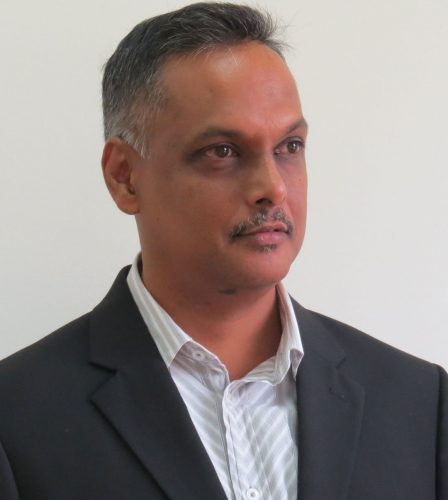
Cabinet approves nomination of Dr Arif Bulkan to UN Human Rights CommitteeDr Bulkan recognised for significant human rights advocacy
Dr Christopher Arif Bulkan was recently nominated by Cabinet to represent Guyana on the United Nations Human Rights Committee (UNHC), according to a press release yesterday from the Ministry of Foreign Affairs.
The next election for membership is scheduled for June 2018. The UNHC is the body of independent experts which monitors the implementation of the International Covenant on Civil and Political Rights by State parties.
The release said that Dr. Bulakan is an Attorney-at-Law and Senior Law Lecturer at the University of the West Indies with specializations in Public Law, Constitutional Law, Caribbean Human Rights Law, and International Human Rights Law. He also co-founded the Faculty of Law UWI Rights Advocacy Project (U-RAP) at the Cave Hill campus, which is a group of law professors who engage in litigation and advocacy aimed at promoting human rights.
Dr. Bulkan has been involved in human rights advocacy for many years and has worked to establish and defend the rights of vulnerable and marginalized communities, the release added.
He has also been involved in public advocacy against the death penalty, both regionally and at events sponsored by the United Nations High Commissioner for Human Rights.
The release said that the UN Human Rights Committee comprises 18 independent experts. The Members are usually elected for a four-year term by State parties.
Currently, membership includes representatives from Paraguay, Tunisia, Latvia, USA, Egypt, France, South Africa, Japan, Montenegro, Mauritania, Canada, Uganda, Greece, Italy, Portugal, Germany, Israel, and Suriname. Suriname’s membership will expire at the end of 2018, and a representative is expected to be selected from the Latin American/Caribbean region.
WHAT IS PANCAP?
PANCAP is a Caribbean regional partnership of governments, regional civil society organisations, regional institutions and organisations, bilateral and multilateral agencies and contributing donor partners established on 14 February 2001. PANCAP provides a structured and unified approach to the Caribbean’s response to the HIV epidemic, and coordinates the response through the Caribbean Regional Strategic Framework on HIV and AIDS to maximise efficient use of resources and increase impact, mobilise resources and build the capacity of partners.
What are the Global AIDS Strategy 2021–2026 targets and commitments?
If targets and commitments in the strategy are achieved:
- The number of people who newly acquire HIV will decrease from 1.7 million in 2019 to less than 370 000 by 2025
- The number of people dying from AIDS-related illnesses will decrease from 690 000 in 2019 to less than 250 000 in 2025.
- The goal of eliminating new HIV infections among children will see the number of new HIV infections drop from 150,000 in 2019 to less than 22,000 in 2025.
What are the 95-95-95 Targets for ending AIDS?
- 95% of People Living with HIV know their HIV status;
- 95% of people who know their status on treatment; and
- 95% of people on treatment with suppressed viral loads.
HELPFUL LINKS:
Global AIDS Strategy 2021–2026, End Inequalities, End AIDS
https://pancap.org/pancap-documents/global-aids-strategy-2021-2026-end-inequalities-end-aids/
Caribbean Regional Strategic Framework on HIV and AIDS (CRSF) 2019-2025
https://pancap.org/pancap-documents/caribbean-regional-strategic-framework-2019-2025/
